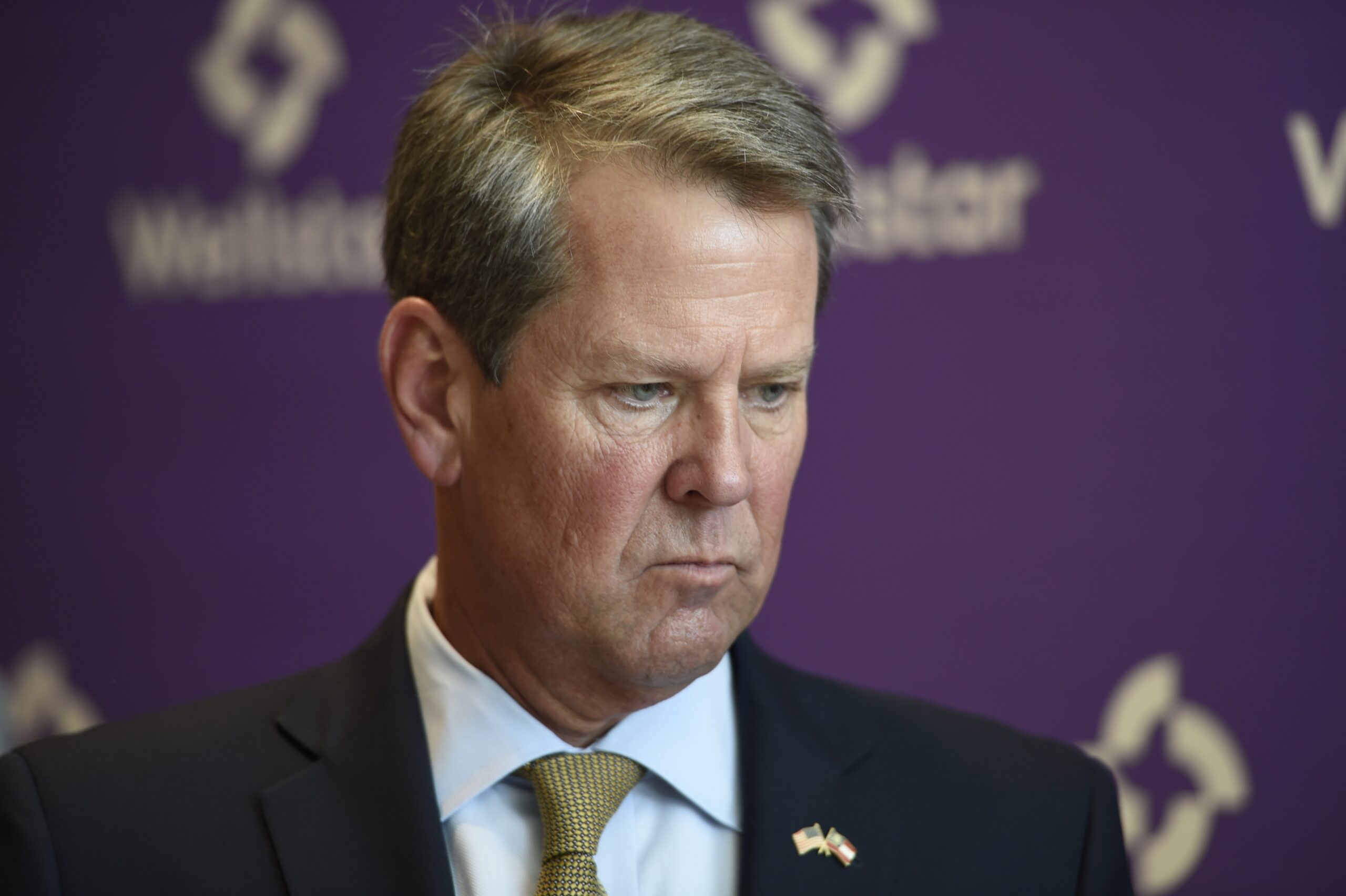Gov. Brian Kemp is pushing back on the latest report from the Trump administration recommending that Georgia take more aggressive action to slow the spread of the coronavirus.
He insists the state has made progress in slowing the spread of the coronavirus, but federal officials and public health experts say those gains could easily disappear.
The latest report from the White House Coronavirus Task Force, obtained by WABE, says Georgia leads the nation for the most new cases of COVID-19. As of Sunday, the state had 216 new infections for every 100,000 people, which was more than double the national average.
In a heated press conference Wednesday, Kemp told reporters his main objection with the report is that it doesn’t tell the whole story of the pandemic in Georgia.
“If you want to put the per capita numbers out there, I look at them every day, that’s good,” he said. “But when you put that out there, also put that our hospitalizations have dropped.”
WABE analysis of data from the Georgia Emergency Management and Homeland Security Agency shows active hospitalizations have declined about 16% since a peak in late July.
New COVID-19 cases have dropped, too — about 30% from a peak around the same time, according to WABE’s review of metrics from the Georgia Department of Public Health.
The White House report acknowledges that metric has shown some “early stability,” but called the gains “small” and “fragile.”
It’s a characterization that public health experts agree with.
“There are some good signs, especially in the metro Atlanta area where we are seeing a slight decrease, but these numbers are fragile,” said Mary Ukuku, who teaches public health at Kennesaw State University.
She worries people will see the modest progress made in recent weeks and relax prevention measures, such as wearing face masks or avoiding large gatherings.
“If we’re not consistently following through with our preventative methods, we could really put ourselves at risk because we do have widespread community spread that makes it difficult for us to really control the virus.”
Consistent messaging from local, state and federal officials on the state of the pandemic in Georgia is more important than ever, Ukuku says, to make sure any gains made so far aren’t lost.
“There have been really mixed messages, and people just don’t know what to do,” said Ben Lopman, an epidemiologist from Emory University. “They don’t know what’s being recommended, and we really just need a joined-up approach.”
Public confusion, Lopman says, can get in the way of driving transmission rates even lower across the state. It’s not the first time Kemp has pushed back on Trump administration reports on Georgia’s progress in fighting the coronavirus.
He also thinks it’s time that Georgia officials consider putting stronger prevention measures in place than they ever have during the pandemic to capitalize on these early signs of positive movement.
“So if the trade-off there is to close down bars and restaurants, I think that’s the approach we ought to be taking,” he said.
The White House has made such recommendations for Georgia for several weeks now, but Kemp has declined to act on them.









